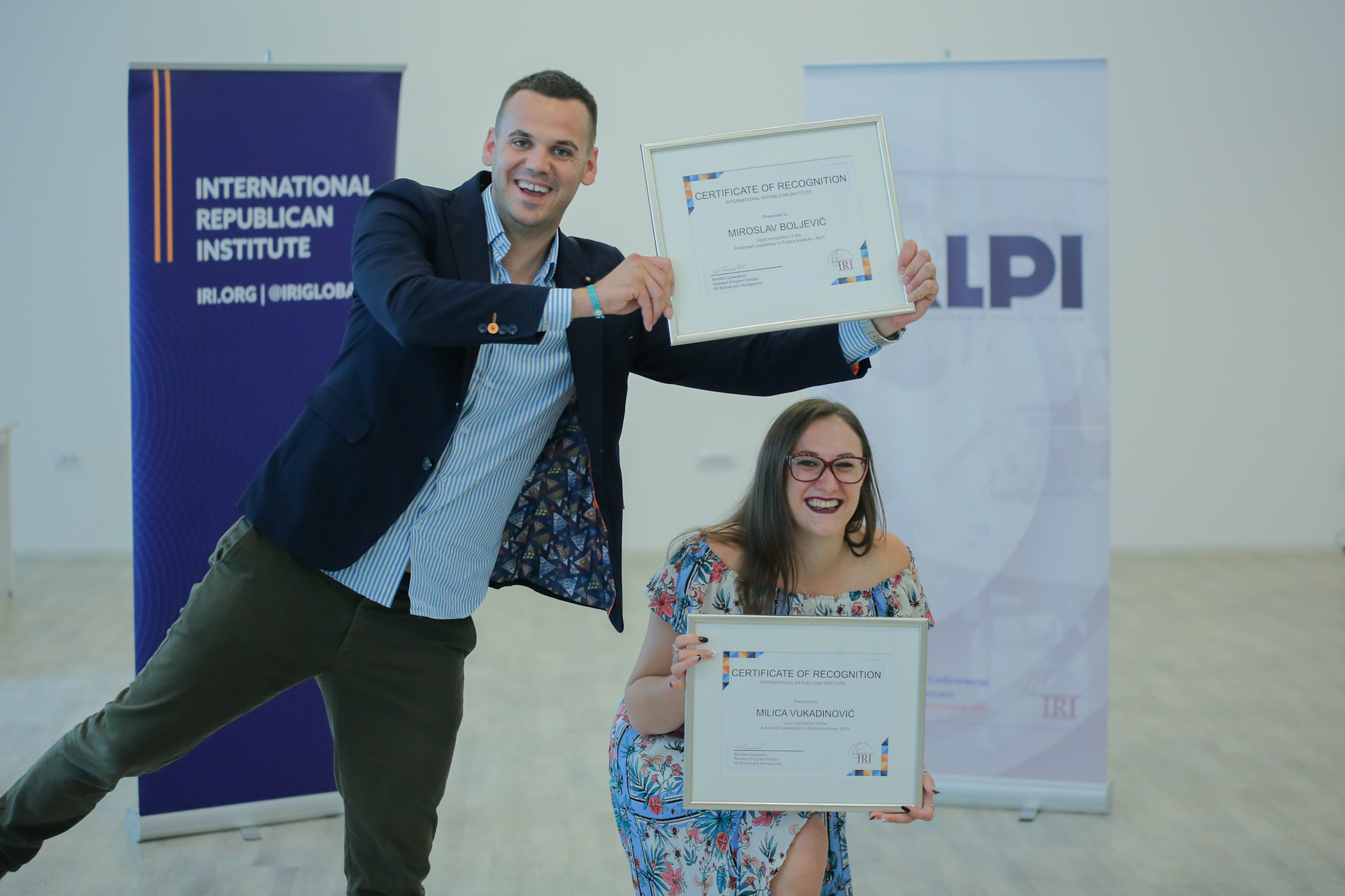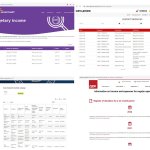
Pioneering Partnership for Change: Collaborative E…
As Ghana prepares for the upcoming 2024 general election, the importance of ensuring a free and fair democratic process has…
Strong multiparty systems are a core component of representative democracy and help to protect America’s national security.
Competitive, issue-based political parties organize the democratic process by providing meaningful choices for voters, engaging citizens in the political process, cultivating responsive leaders, and holding governments accountable. IRI supports and strengthens political parties to increase their representation, effectiveness, and accountability.

For more than four decades, IRI has supported over 190 political parties around the world – at national, regional, and local levels – to build capacity in five key areas: interest identification and aggregation; citizen engagement and voter mobilization; party organization; leadership recruitment and retention; and governing and accountability.
IRI supports party linkages with citizens by helping leaders and members identify citizen interests through public opinion research, including polling and focus-group discussions. This helps ensure that party activities are responsive to the public. Additionally, IRI provides support for developing substantive policy platforms based on parties’ understanding of their constituencies. Through the development of branding, marketing, and external messaging, parties can ensure that the public associates them with their respective platforms.
IRI engages citizens in the political process through voter registration, identification of supporters, get out the vote (GOTV) efforts, volunteer recruitment and retention, as well as other tools and strategies, such as signing petitions and attending town hall meetings. IRI promotes issue-based electoral outreach and actively discourages voter mobilization based on bribery, coercion, or other forms of political clientelism.
IRI supports the development of democratic party organizational structures, including support for local branch development, internal communication, fundraising, and campaign infrastructure.
IRI programming strengthens party development of competent and responsive political leaders through knowledge and capacity building trainings; support for internal, democratic leadership selection; and championing youth and women’s party wings.
IRI promotes accountability by helping candidates develop policies that are reflective of party platforms once they have won elections. For example, IRI’s From Winning to Governing Effectively (WiGov) curriculum helps party candidates effectively transition from campaigning to developing and implementing their promised policies.
The wide variety of political party needs emphasizes the importance of tailoring each program to the unique strengths and weaknesses of local parties and party systems. Through public opinion research, landscape analyses, and key actor assessments, IRI contextualizes and combats the challenges parties face in maintaining their roles as a key link between citizens and governments. The success of such programming relies on the Institute’s ability to build and inspire strong relationships and networks, within the community and at various party level structures.
Trust in established political parties has declined across the globe. Rising disillusionment has coincided with a decrease in voter turnout, requiring renewed connection between political parties and their constituents. IRI programs help political parties develop constituent outreach strategies that include branding, marketing, and external messaging. IRI also provides public opinion research to inform constituent outreach, giving parties the information they need to inform their messaging and policies.
Many political parties suffer from weak internal organization structures, resulting in a lack of legitimacy at the grassroots level and poor communication between local and national branches of the party. IRI programs strengthen the organizational capacity of political parties, including internal communication, local branch development, internally democratic rules and procedures, membership recruitment and retention, fundraising, and identification of supporters.
To help provide meaningful policy choices for voters, IRI programming encourages including citizens’ interests in political parties’ campaigns and platforms. These program approaches may include public opinion research that offers parties data on constituent interests and/or activities that support the development of cohesive policy platforms.
Parties need real-time data on citizens’ concerns to be responsive to these needs. To address this need, IRI conducts and shares public opinion research – including polls and focus groups – with political parties. For the polling to support issue-based competition, stakeholders must understand the data before they can accept and use the results. To achieve this, the Institute “phases in” public opinion research, initially running programs that introduce party representatives to polling and focus group methods and how the data can inform party operations. Once this is established, polls help the Institute “start the conversation” on how to best align political parties with citizen interests.
Competitive parties require competent and responsive leaders who place citizens’ interests first. To strengthen leadership, IRI provides capacity-building trainings, supports the development of internal democratic leadership selection processes, and helps bolster youth and women wings.
IRI includes party representatives from across the country, particularly outside of the capital, in party building and campaign planning programs to encourage a diversity in party voices and create a strong national network. To maximize sustainability of leadership development opportunities, IRI establishes leadership academies. These networking opportunities enable party members to build strong relationships with key actors, including central leadership teams and party branch networks.
IRI programs support cross-party initiatives like policy debates, working groups, legislative caucus development, and integrity pacts. Pro-democracy dialogue have been promoted through programs like IRI’s Advanced Leadership in Politics Institute (ALPI). ALPI has brought together youth leaders from across the Balkans to promote cross-border solidarity through workshops, lectures, seminars, and events that encourage collaboration and compromise. The ALPI Toolkit further encourages social cohesion in other divided political environments. This ongoing, structured interaction between competitors can mitigate polarization, corruption, and political conflict.

As Ghana prepares for the upcoming 2024 general election, the importance of ensuring a free and fair democratic process has…

The International Republican Institute (IRI) has supported increased transparency in North Macedonia since 2018, when it developed the Open Finance…

Turkey’s system of checks and balances had been imbalanced for years. The 2017 Constitutional Referendum worsened the situation with the…

In the hyper-competitive landscape of modern political contests, parties must consider every possible opportunity to enhance their prospects of appealing…